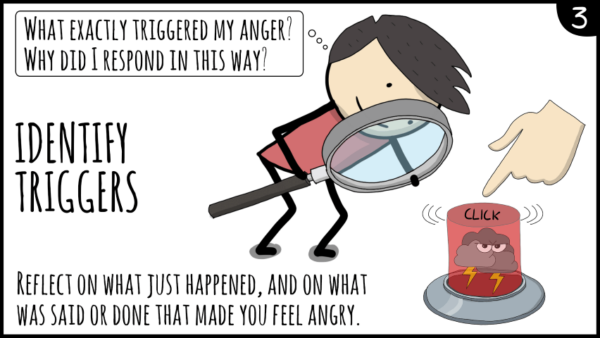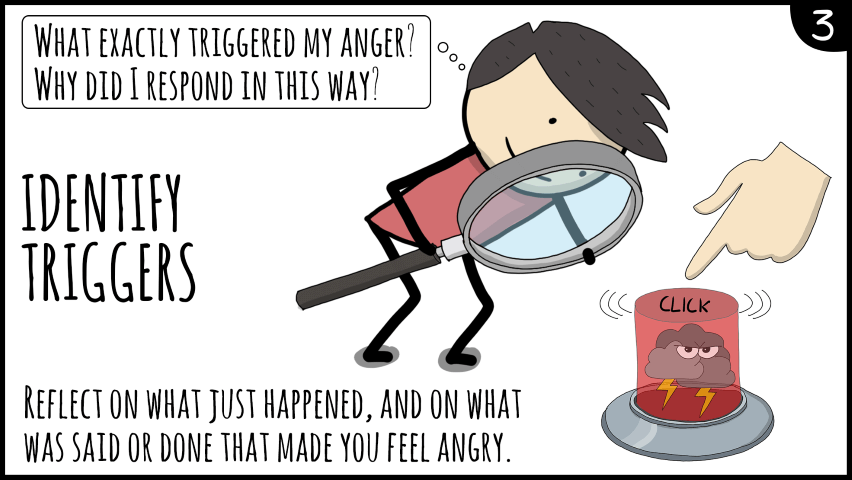Trendy Lifestyle Hacks
10 Anger Management Tips
Managing anger effectively is crucial for maintaining healthy relationships, reducing stress, and improving overall well-being. Uncontrolled anger can lead to negative consequences, both physically and emotionally, so it’s important to find constructive ways to deal with it.
Here are 10 practical anger management tips to help you stay calm, regain control, and respond more thoughtfully in heated situations.
1. Take a Timeout

When you feel your anger escalating, give yourself a break by stepping away from the situation. A brief timeout can give you the space to collect your thoughts and emotions, preventing you from saying or doing something you might regret. Taking a few minutes to cool down can make a big difference in how you handle a conflict.
2. Practice Deep Breathing

Deep breathing exercises can help calm your mind and reduce the intensity of your anger. When you feel yourself getting angry, take a moment to focus on your breathing. Inhale deeply through your nose, hold for a few seconds, and exhale slowly through your mouth. Repeat this process until you feel more relaxed. Deep breathing increases oxygen flow to the brain, helping to reduce stress and promote a sense of calm.
3. Identify Triggers

Understanding what triggers your anger is crucial for managing it effectively. Keep a journal of situations that make you angry and reflect on the underlying reasons. By identifying patterns, you can learn to avoid these triggers or approach them differently, which can help you maintain better control over your emotions.
4. Use “I” Statements
When discussing what’s bothering you, use “I” statements to express your feelings rather than blaming others. For example, say, “I feel frustrated when you interrupt me,” instead of “You never let me speak.” This approach helps in communicating your concerns without escalating the conflict, making it easier to find a resolution.
5. Practice Mindfulness and Meditation

Mindfulness and meditation can help you stay grounded and aware of your emotions in the present moment. Regular practice can increase your ability to manage stress and anger by helping you observe your thoughts without reacting impulsively. This awareness allows you to choose a more measured response rather than acting out in anger.
6. Use Relaxation Techniques
Incorporate relaxation techniques into your daily routine to help manage anger. Techniques like progressive muscle relaxation, guided imagery, or listening to calming music can reduce tension and promote a sense of peace. Practicing these techniques regularly can make it easier to stay calm during stressful situations.
7. Focus on Solutions, Not Problems
When angry, it’s easy to get stuck focusing on the problem rather than finding a solution. Try shifting your mindset to focus on solving the issue at hand. Ask yourself what steps you can take to resolve the situation rather than dwelling on what went wrong. This approach fosters a proactive attitude and reduces feelings of helplessness.
8. Practice Empathy

Try to see things from the other person’s perspective. Understanding why someone acted in a certain way can help reduce feelings of anger and encourage compassion. Practicing empathy can lead to more constructive conversations and foster better relationships.
9. Use Humor to Defuse Tension
Humor can be a powerful tool to lighten the mood and defuse anger. Try to find the funny side of a frustrating situation, as laughter can break the tension and help you see things in a new light. However, avoid using sarcasm or humor that could hurt someone’s feelings.
10. Establish Healthy Boundaries
Setting boundaries can help you manage anger by preventing situations that trigger it. Be clear about what you’re willing to accept and what you’re not. Communicate your boundaries respectfully and stick to them to protect your emotional well-being.


